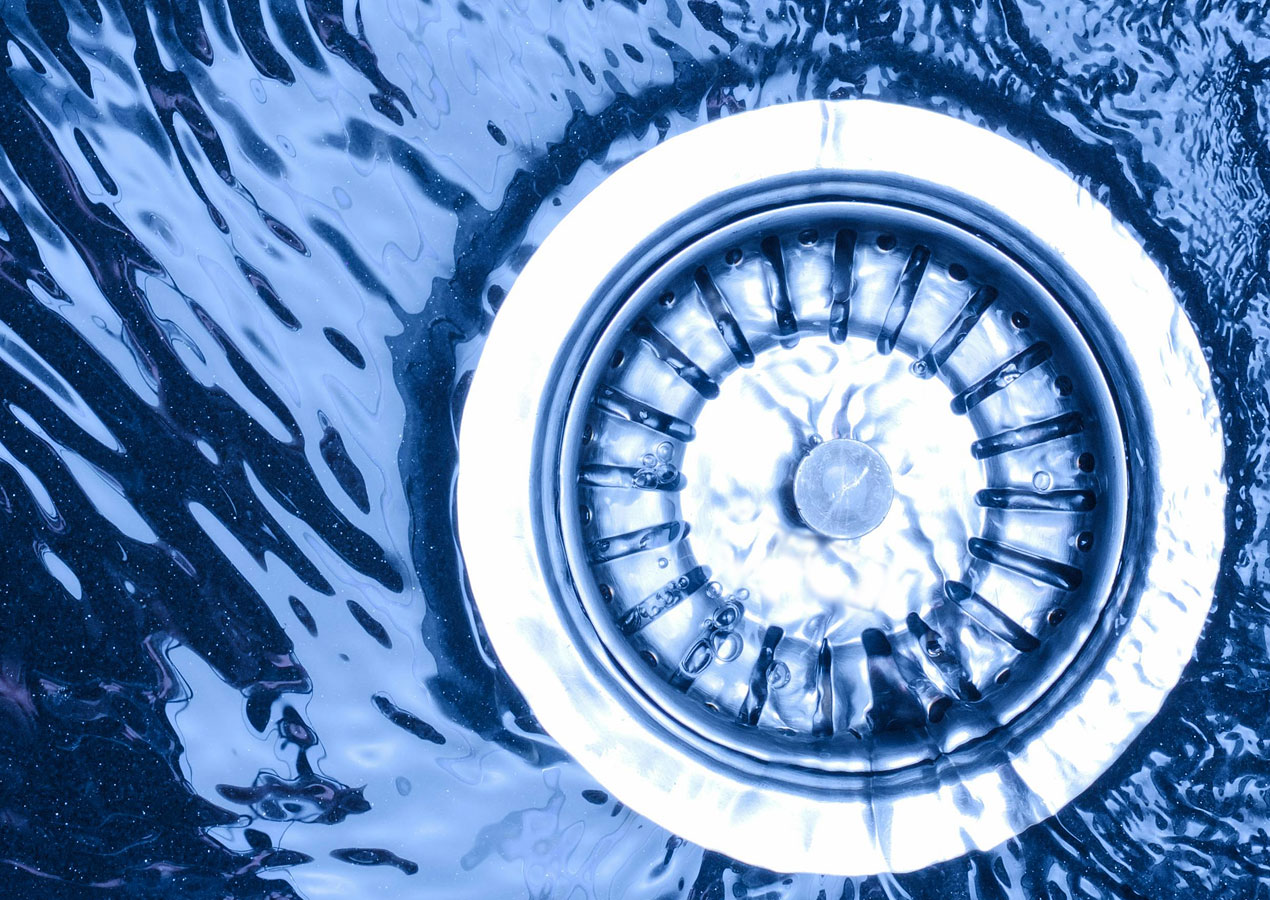
16 Feb Drain Maintenance Do’s and Don’ts: What Not to Pour Down your Drain
Having a clogged drain or—even worse—a jammed garbage disposal is a plumbing nightmare that can happen to anyone. However, they’re easily avoidable if you know what you can and can not pour or put down your kitchen sink. And if you start seeing water backup in your kitchen sink, dealing with a clog is easy if done correctly—and potentially hazardous for your pipes and sink if dealt with incorrectly. So check out these drain maintenance do’s and don’ts to keep your pipes healthy and clog-free.
Don’t Put These Things Down Your Drain
Since most kitchen sinks are well-equipped with a garbage disposal unit, it’s not uncommon for homeowners to put just about anything down their sink. This, however, is the easiest way for you to clog your drain, as there are a number of things—from pasta to cooking grease—that can inevitably clog your garbage disposal over time.
As a general rule of thumb, anything oily or greasy will inevitably clog your drain if put down your sink. While fat, grease and oil may go down your pipes with no problem, the substances will end up cooling over time, solidifying in your drain and causing a very nasty clog. It’s best to simply gather and collect the greasy food you were planning to put down your drain, throw it in a bag or jar instead and toss it in the trash. You can also make sure to wipe down your pan with a paper towel before cleaning to ensure that cooking oil doesn’t end up in your drain either. Remember, if it’s F.O.G (fat, oil or grease), it’s not safe for your pipes.
Other items to avoid putting down your drain include pasta, egg shells, coffee grounds, fruit pits and seeds as well as anything too fibrous, stringy or starchy, as these food items can be reduced into a pulp in your garbage disposal and wrap themselves around your unit’s spinning blades, potentially causing a jam. Bones are also a big no-no—with the exception of small fish bones. Large to medium-sized bones, such as chicken bones, will almost always get caught in your garbage disposal and jam the unit, as most garbage disposal blades won’t be able to cut through bone.
While there are so many other hazardous materials out there that you should not put down your drain, there are simply too many to list here. In the future, it’s best to simply stop and consider how something will react to water and a confined space before throwing it down your sink.
Fixing a Clogged Drain the Right Way
If the water in your sink has begun to pool and drain slowly—or not at all—you most likely have a clogged drain. Before you reach for the chemical cleaners, however, consider this. Most chemical cleaners don’t work, are corrosive by nature and will eat away at your pipes, are bad for the environment and can end up in our oceans and lakes, and also emit toxic fumes that are not safe for you to inhale. Sure, it may get your drain to unclog temporarily, however we recommend fixing your pipes the right way.
If the drain is slow and water can still move down your pipes, you may be able to get away with using a plunger or auger to remove whatever object or material is stuck in your drain. It might require a bit of elbow grease to get the job done, but it’s much safer for your pipes. If there’s something larger stuck in your garbage disposal that’s causing a complete clog, the pipes below your sink may have to be disassembled to fix the blockage if you’ve already tried a plunger or auger—and if you’re uncomfortable performing this task, it’s best to call a plumber or plumbing company to have a professional get the job done.
Can I Pour Hot Water Down My Drain?
A widespread home remedy for clogged drains, boiling water and baking soda—or salt—can work to unclog your drain, however its effectiveness against heavily blocked pipes is minimal at best. It’s also important to note that not all pipes can handle water at such high temperatures. For example, a PVC pipe can only withstand temperatures of up to 140 degrees Fahrenheit, and boiling water can easily exceed that limit. This will cause your PVC pipes to bend and maybe even crack, making your plumbing fiasco even worse. Iron and copper pipes, however, can easily handle boiling hot water, however it can still damage plastic seals surrounding your pipes.
535 Plumbing – Your Drain Clearing Experts
If you live on Oahu and are in need of a licensed plumber, choose 535 Plumbing for the job! Our team of professional Oahu plumbers are highly skilled and our excellent customer support representatives will work with you to schedule your appointments at a time you most convenient. Learn more and schedule an appointment by calling (808) 300-0535, or Visit Our Contact Us Page. Mahalo!


